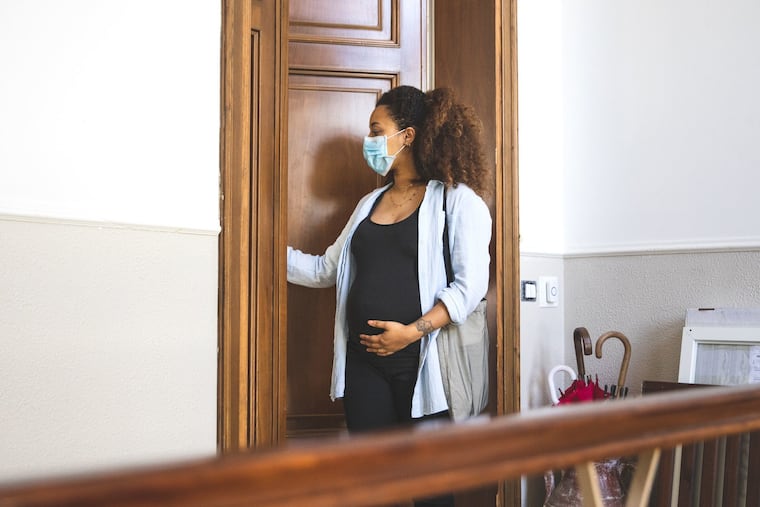Pregnant women rarely are in medical studies. Penn wants moms-to-be in coronavirus trials.
Excluding pregnant women from coronavirus clinical research does nothing to address their unique needs.

The University of Pennsylvania has opened two studies of convalescent plasma for COVID-19 to a group that is almost always excluded from clinical trials: pregnant women.
The medical community has been lobbying in recent years to include pregnant and breast-feeding women in clinical research, and the coronavirus pandemic has heightened the need. In March, for example, the Coalition to Advance Maternal Therapeutics — made up of 20 medical and advocacy groups — wrote to leaders of the National Institutes of Health and the U.S. Food and Drug Administration to urge inclusion of such women in “all research for the development of vaccines and therapeutics" for COVID-19.
Yet most of the 900 such trials underway worldwide explicitly exclude pregnancy or don’t address it, according to a May report in the American Journal of Perinatology.
“It is a historical — and to be honest, somewhat patriarchal — unwillingness to include pregnant women in research,” said Penn maternal-fetal medicine specialist Michal Elovitz, who helped design the convalescent plasma trials. “It’s born out of concern for the pregnant women and her fetus, but now we have limited data on the best care for them.”
Convalescent plasma is actually a century-old approach that involves transfusing blood plasma donated by recovered COVID-19 patients into patients gripped by the disease. The hope, not yet proved, is that disease-fighting antibodies in the plasma will be helpful. The approach has been tried with previous novel coronavirus diseases, namely SARS and MERS, as well as Ebola, but the results were inconclusive.
Last month, Penn launched its first plasma trial, which plans to enroll 50 critically ill patients on ventilators. So far, said Katharine J. Bar, the infectious disease specialist leading the study, no pregnant patients have been that sick — which is a good thing.
Last week, a trial for less dire cases opened. Eighty patients hospitalized with COVID-19-related pneumonia, including pregnant women, will be randomly assigned to get plasma, or not, in addition to standard care. Randomized trials are the most reliable way to see whether a treatment is effective.
Coincidentally, last week the Journal of the American Medical Association published a randomized trial of plasma involving 103 Chinese patients with severe or life-threatening COVID-19. The study, which had to be ended early because the pandemic subsided in China, found that plasma was safe, but it did not hasten patients’ recoveries.
Bar was not surprised by the results.
“If we can intervene earlier, plasma might be effective," Bar said. “That is when I think people are most optimistic about it helping.”
A reassuring but mysterious piece of the coronavirus puzzle is that pregnant women who become infected — and screening suggests up to 15% do — rarely get severely ill, and rarely spread the virus to their offspring. In contrast, SARS and MERS were particularly dangerous for pregnant women and infants, as is the seasonal flu. (That’s why a flu shot is recommended for expectant mothers.)
This is not to suggest pregnant women are invulnerable to coronavirus. Iranian researchers in April reported nine cases of severe COVID-19 in the second or third trimester of pregnancy, including seven women who died.
“Pregnant women are not exempt from COVID-19,” Elovitz said, noting that at the peak of the local outbreak, seven pregnant women were on ventilators at the Hospital of the University of Pennsylvania. (They have recovered.)
Some severely ill pregnant women were also given remdesivir. Such women are excluded from ongoing clinical trials of the experimental antiviral drug, but doctors can prescribe it under the government’s “compassionate use” regulations.
“So we gave the drug on a compassionate care basis," Elovitz said, "but yet again, we are guessing” rather than studying what’s best for pregnant women.
» HELP US REPORT: Are you a health care worker, medical provider, government worker, patient, frontline worker or other expert? We want to hear from you.
As the maternal therapeutics coalition said in its letter, “there needs to be a cultural shift to protect women through research rather than from research.”